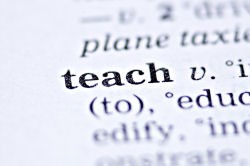It is fundamental for any teacher to have their own philosophy of education, which is made up of their values and beliefs about learning, teaching and education, because this is an influential element of the learning, planning and reflecting process in the classroom, of which the teacher is responsible for.
Education is a never-ending, lifelong learning experience throughout which an individual to learn information, process knowledge and develop skills and abilities through experience and practice, which will develop the individual in becoming well-rounded. The value education holds is powerful and significant to many aspects of life including society, relationships and personal development; we develop by learning and being educated. Education and the value found in education is somewhat dependent around the individual’s learning experience.
To me, education is learning, knowledge, understanding, developing, experience and adaptation. I believe it is important for the teacher and the children to engage to their full capacity, always; be interested; and for the teacher to have and promote a ‘thirst for knowledge’. To experience valuable education, approaches and attitudes to acknowledge and portray are: mutual respect, equality, consideration, honesty, loyalty, integrity, justice, trust and fairness.
The teacher is the role model to the children he or she is responsible for; if the teacher portrays a thoughtful, considerate and interested attitude, the children will follow this. The responsibility the teacher holds for the learning and development of each child is highly important; the teacher must always ask, ‘what is the impact on learning?’, when he or she goes through the planning and assessing cycle. It is the teacher’s responsibility for the learning and education within the classroom – this is why it is of paramount importance the teacher has his or her own Philosophy of Education.


